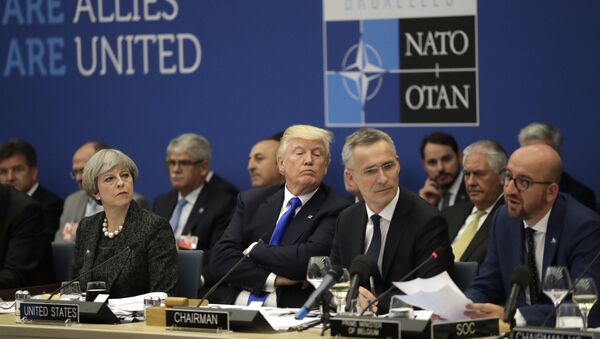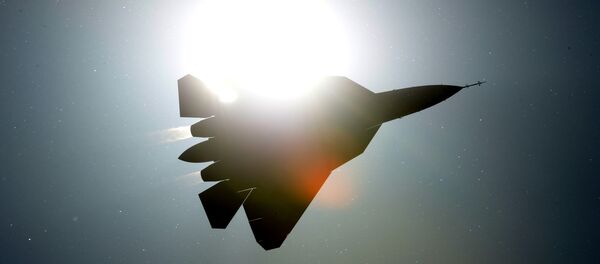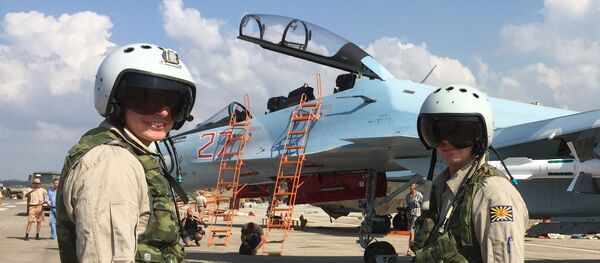He also said that NATO is not seeking a confrontation with Russia.
Speaking to Sputnik, Russian military expert and chief editor of the National Defense magazine Igor Korotchenko stressed the political importance of NATO's statement on Russia, but said that it's unclear why Stoltenberg decided to say so.
"Another question is whether this measure is aimed at catching Russia off guard in respect to the actions that the alliance is taking in Lithuania, Latvia, Estonia and Poland to build up its combat capabilities and create the appropriate infrastructure," he said.
Korotchenko added that "Russia welcomes positive statements, but NATO's practical steps do not yet give grounds to draw conclusions about the alliance's friendly attitude towards our country."
He also suggested that it was US President Donald Trump's pre-election statement about Daesh and international terrorism that influenced the opinion of NATO members during the summit.
"Obviously, Washington's stance prompted NATO to make a statement on its efforts now being focused on organizational and technical measures to support the actions by the US-led coalition in Syria and Iraq," Korotchenko said.
He described NATO's decision to join the anti-Daesh coalition as a positive yet "symbolic" step.
Stoltenberg, for his part, said at a press briefing on Thursday that NATO member countries have reiterated that the alliance will continue its dual-track approach to Russia which will combine defense and dialogue.
"NATO’s relationship with Russia was another topic of discussion. Today we reaffirmed our dual-track approach – strong defense combined with meaningful dialogue," Stoltenberg told reporters in Brussels.
NATO-Russia relations have gone downhill after Crimea's reunification with Russia and the ongoing crisis in Ukraine. In 2014, NATO suspended practical military and civilian cooperation projects with Moscow, but still keeps political channels open.
Earlier this month, Russian Foreign Minister Sergei Lavrov said that NATO sent relations with Moscow into a deep freeze after its plans aimed at severing ties between Russia and Ukraine failed.
As a result, the US-led military alliance suspended cooperation in all areas of mutual interest, including counterterrorism efforts, Russia's top diplomat said. However, the bloc has tried to restart dialogue despite "the resistance from an aggressive minority."
The Kremlin has always maintained that Moscow is ready to discuss issues of mutual concern with NATO on equal terms and without preconditions.
Never miss a story again — sign up to our Telegram channel and we'll keep you up to speed!




